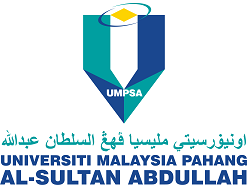APLIKASI MODUL TAZKIYYAH AL-NAFS DALAM PEMBANGUNAN ROHANI DI KALANGAN PELAJAR DI UNIVERSITI MALAYSIA PAHANG
The Application of the Module of Tazkiyyah al-Nafs in the Spiritual Development Among Students of Universiti Malaysia Pahang
DOI:
https://doi.org/10.15282/ijhtc.v5i1.4821Keywords:
Tazkiyah al-nafs, Exercise, Module Guide (Mursyid), Spiritual DevelopmentAbstract
The study on the usability Exercise Module of Tazkiyah Al-Nafs (MLTN) is a preliminary study to assess the application of spiritual development among students in Universiti Malaysia Pahang. The objective of the study is to identify the level of acceptance of this module among the participants, analyze the effectiveness of this module application and to assess the impact on the application of Exercise Module of Tazkiyah Al-Nafs in the aspect of improvisation. This exploratory study gathers the spiritual program exercise reflection and face to face interview with 15 participants who had to participate in the exercise program consistently. Inductive analysis has been conducted to answer the study aims such as what, why, and how as aligned with the qualitative nature. The overall findings indicate this module is accepted among the participants with two-element of effectiveness which is the consistency of the practice on Tazkiyah al-Nafs and the involvement of the teacher as guides in the spiritual exercise. This study recommends the consistency of the implementation of spiritual exercise programs to assess the impact on the module for further improvisation. In a nutshell, this module is desirable for the application on the spiritual development of students because the Islamic practice can uplift the value of quality spiritual among participants.
Kajian kebolehgunaan Modul Latihan Tazkiyah al-Nafs (MLTN) merupakan satu kajian rintis untuk menilai sejauhmana modul ini dapat diaplikasi dalam program pembangunan spiritual pelajar di Universiti Malaysia Pahang (UMP). Sehubungan itu, objektif utama kajian ini adalah untuk mengenalpasti tahap penerimaan modul ini dalam kalangan peserta, menganalisis elemen keberkesanan aplikasi modul serta menilai impak pelaksanaan program latihan Tazkiyah al-Nafs dalam aspek penambahbaikan modul. Kajian ini berbentuk penerokaan (exploratory research) iaitu data-data kajian telah diperolehi melalui laporan refleksi program latihan spiritual serta kajia temubual secara bersemuka dengan 15 orang peserta yang mengikuti modul latihan ini secara konsisten. Data-data kualitatif yang diperolehi telah dianalisis secara induktif bagi menjawab soalan-soalan kajian apakah, bagaimanakah dan sejauhmanakah dalam konteks kajian kualitatif. Dapatan kajian secara keseluruhannya menunjukkan modul ini dapat diterima dalam kalangan peserta dan dua elemen utama keberkesanan modul yang dikenal pasti adalah konsistensi amalan tazkiyah al-nafs dalam kalangan peserta serta penglibatan guru sebagai mursyid dalam latihan spiritual. Dalam aspek penambahbaikan modul, kajian ini menyarankan agar program latihan spiritual dapat dilaksanakan secara berterusan bagi menilai impak pelaksanaan modul latihan ini. Akhirnya, kajian ini merumuskan bahawa modul ini amat sesuai untuk diaplikasikan dalam program pembangunan spiritual pelajar masa kini kerana setiap amalan keislaman yang dipraktikan telah dapat mempertingkatkan nilai kualiti spiritual setiap diri peserta.
Downloads
Published
Versions
- 2020-07-01 (2)
- 2020-07-01 (1)
Issue
Section
License
Copyright (c) 2020 Universiti Malaysia Pahang Publishing

This work is licensed under a Creative Commons Attribution-NonCommercial 4.0 International License.




